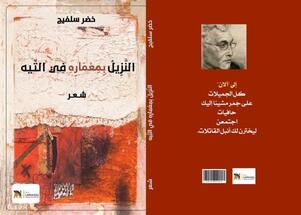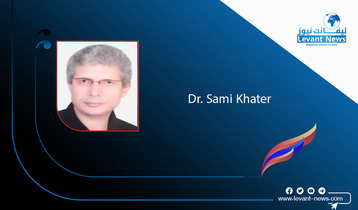-
Iran’s Survival Depends on a Weakened Iraq

On August 28th, Iraq was so secure and stable that it was able to host a successful conference for regional and international leaders, under the title “Baghdad Conference for Cooperation and Partnership.” It was heartwarming to see Iraq regaining its leading role in the Middle East region by acting as a hub for cooperation between Arabs, Turks, and Persians. That is after eighteen years wherein Iraq’s wealthy and fertile land was abused as a ground for conflicts between these particular regional powers.
The Baghdad summit came at a very critical time for the Middle East region, which went through a state of panic, in the aftermath of the hastily and chaotic U.S. withdrawal from Afghanistan. The conference did not only push the regional leaders to put their differences aside and focus on addressing the potential security risks resulting from Taliban’s political rise in Afghanistan, but also confirmed Iraq’s importance as a front wall in the face of expected security threats thanks to its geographic location at the eastern gates of the region.
Over September and October, Iraq was pre-occupied with preparing for and mobilizing voters for the sixth Parliamentary elections, since 2003. Meanwhile, the state security forces and intelligence bureau continued their successful missions to trace and arrest ISIS terrorists. On October 11th, Iraqi Prime Minister announced the arrest of Sami Jassem Al-Jubouri, the former assistant of ISIS leader, Abu Bakr Al-Baghdadi. These were positive indications that Iraq is ready to enter the new era as a strong state, after the completion of parliamentary elections in October. The electoral process went smooth, albeit with a relatively low voter turnout of 43%.
However, since announcing election results on October 21st, the country has gone into a state of chaos that has been rapidly escalating into armed confrontations. Protests erupted around Baghdad in disapproval to the results of the elections. The Iran-backed militia, which is widely spread all over Iraq, are the main organizers of the protests. Some observers justified that by them being angry because their politicians lost a few of their formerly held seats to Muqtada Al-Sadr’s “Sadrist List,” which won the majority of the parliament. But that is not a reason good enough for protesting, simply because despite losing a few seats, the Iran-backed politicians still have the upper hand in naming the future Prime Minister, according to the Iraqi political systems which favors certain political blocs and coalitions.
Apparently, the protests organized by the Iran-backed militia had another purpose, which is instigating chaos that prevents Iraq from pursuing with building a strong state, that is not dependent on Iran. Hence, the protests which started as peaceful rallies against election results have quickly turned into violent clashes between protesters and security forces, leaving more than one hundred people injured and killed from both sides. After about two weeks of violent riot, the state managed to control the situation as the Prime Minister, Al-Kadhimi, promised to hold those who committed violence, either protesters or security personnel, accountable and confirmed state’s respect to people’s right to protest.
Yet, in an unexpected escalation on November 7th, the Prime Minister’s house, which is located at the high-security Greene Zone in Baghdad, was targeted with a drone attack. Luckily, Al-Kadhimi survived the attack, but six of his guards were injured and parts of his house got damaged by the explosives loaded on the drones. Ironically, this is the first assassination attempt in history to happen using a loaded drone, but this is a topic for another article. What matters for us, here, is that this drone assassination attempt offers evidence on the hidden hands behind the recent security chaos in Iraq. The dirty hands that plotted the violent protests and the Prime Minister’s assassination attempt, are the same dirty hands that assassinated more than thirty Iraqi political activists, in the past year. It is the Mullah regime in Iran.
The only two actors, perhaps in the entire world, who hate to see Iraq prosper again as a strong coherent state, are the Islamic State (ISIS) terrorists and the Islamic Republic of Iran. The common aspect between the non-state actor, ISIS, and the state of Iran, in this particular case, is that Iraq’s political instability and lack of security is the only guarantee for their survival and even flourishing. By abusing the wealth under the hands of a weakened Iraqi state, Iran managed, for years, to survive unbearable economic pressures by the United States. In that sense, Iraq’s re-emergence as a strong state with an important regional role to play means the fall of the last lifeline that the Mullah regime in Iran is hanging to. Ironically, the complete collapse of the Iraqi state is also harming to Iran. Therefore, all Iran’s interventions in Iraq are focused on achieving the goal to keep the Iraqi state existent but too weak to independently operate.
For Iraq to escape this tragic fallback into chaos, and pursue its endeavors to recover from two decades of bloody conflicts that mostly have nothing to do with Iraq itself, the Iraqi state has to first identify the internal and external parties that benefit from preserving Iraq’s misery and hold them accountable. Meanwhile, it is time for influential countries in the Middle East region to give a helping hand to the Iraqi state in its mission to clean its home from the dangerous elements that had been gnawing its walls for years. Ensuring Iraq’s stability has become even more crucial for preserving Middle East security, especially after the United States’ withdrawal from Afghanistan and the re-rise of Taliban.

BY: Dalia Ziada
Tags
You May Also Like
Popular Posts
Caricature
BENEFIT Sponsors BuildHer...
- April 23, 2025
BENEFIT, the Kingdom’s innovator and leading company in Fintech and electronic financial transactions service, has sponsored the BuildHer CityHack 2025 Hackathon, a two-day event spearheaded by the College of Engineering and Technology at the Royal University for Women (RUW).
Aimed at secondary school students, the event brought together a distinguished group of academic professionals and technology experts to mentor and inspire young participants.
More than 100 high school students from across the Kingdom of Bahrain took part in the hackathon, which featured an intensive programme of training workshops and hands-on sessions. These activities were tailored to enhance participants’ critical thinking, collaborative problem-solving, and team-building capabilities, while also encouraging the development of practical and sustainable solutions to contemporary challenges using modern technological tools.
BENEFIT’s Chief Executive Mr. Abdulwahed AlJanahi, commented: “Our support for this educational hackathon reflects our long-term strategic vision to nurture the talents of emerging national youth and empower the next generation of accomplished female leaders in technology. By fostering creativity and innovation, we aim to contribute meaningfully to Bahrain’s comprehensive development goals and align with the aspirations outlined in the Kingdom’s Vision 2030—an ambition in which BENEFIT plays a central role.”
Professor Riyadh Yousif Hamzah, President of the Royal University for Women, commented: “This initiative reflects our commitment to advancing women in STEM fields. We're cultivating a generation of creative, solution-driven female leaders who will drive national development. Our partnership with BENEFIT exemplifies the powerful synergy between academia and private sector in supporting educational innovation.”
Hanan Abdulla Hasan, Senior Manager, PR & Communication at BENEFIT, said: “We are honoured to collaborate with RUW in supporting this remarkable technology-focused event. It highlights our commitment to social responsibility, and our ongoing efforts to enhance the digital and innovation capabilities of young Bahraini women and foster their ability to harness technological tools in the service of a smarter, more sustainable future.”
For his part, Dr. Humam ElAgha, Acting Dean of the College of Engineering and Technology at the University, said: “BuildHer CityHack 2025 embodies our hands-on approach to education. By tackling real-world problems through creative thinking and sustainable solutions, we're preparing women to thrive in the knowledge economy – a cornerstone of the University's vision.”
opinion
Report
ads
Newsletter
Subscribe to our mailing list to get the new updates!






















